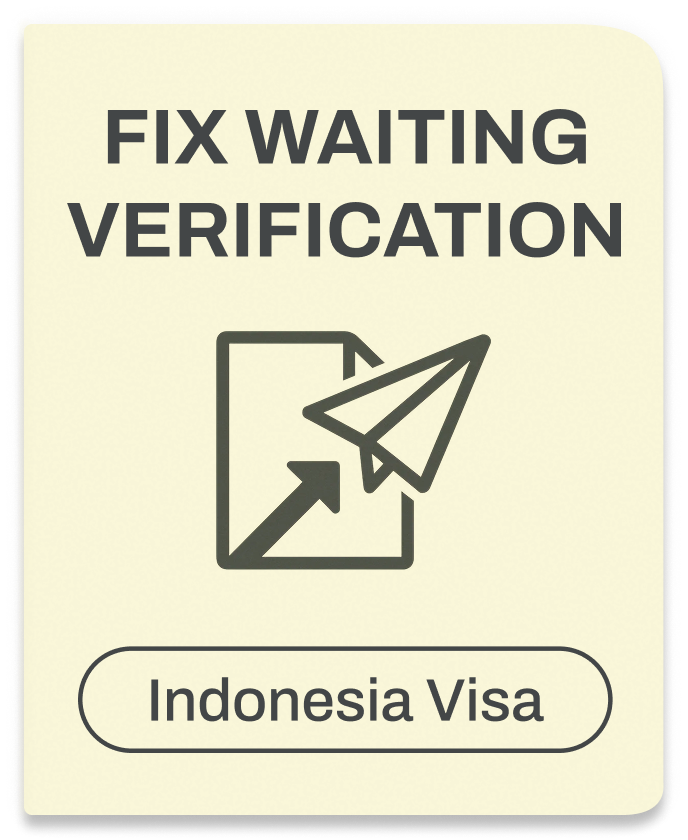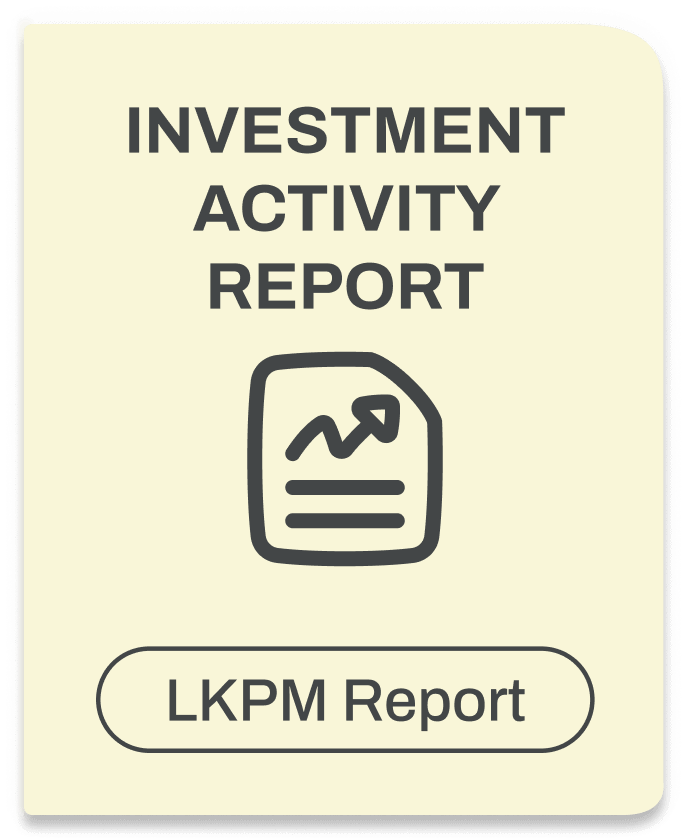How to Get a Domicile Letter in Indonesia and Why It’s Important

A domicile letter has significant legal implications, particularly in Indonesia. It is a crucial document for various administrative purposes, including business registration, tax compliance, and immigration. This can be particularly important in property rights, contractual obligations, or residency status cases.
Therefore, it is essential to ensure that the letter is obtained from the relevant authorities and is accurate. A valid domicile letter can provide a solid foundation for legal standing in various administrative and judicial matters.
What is a Domicile Letter in Indonesia?
A domicile letter in Indonesia, known locally as “Surat Keterangan Domisili,” is an official document that certifies an individual’s current residential address within the country. This document is necessary for various bureaucratic and administrative procedures, including registering a new residence, updating a stay permit, and managing legal documents. It serves as a formal recognition of a person’s residence, which is essential not only for Indonesian citizens but also for foreigners residing in Indonesia.
Issuing a domicile letter facilitates interactions with local authorities, ensuring that the address used in official documents is validated and officially recognized. This is particularly important for foreigners as it often forms a part of the documentation required for visa and residency applications. Whether renting a house, leasing an apartment, or having other living arrangements, obtaining a domicile letter is a crucial step in ensuring compliance with Indonesian regulations regarding residence.
Types of Domicile Letters

There are several types of domicile letters, each serving specific purposes based on the needs of individuals or entities:
- Individual Domicile Letter: This type of letter is essential for individuals planning to move or settle in a new area different from the address listed on their KTP (Kartu Tanda Penduduk or Identity Card). It verifies the person’s new residence in the intended locality and is crucial for updating official records and obtaining local services.
- Company Domicile Letter: Utilized primarily by businesses, this document acts as formal notification of the establishment of a company within a particular district or region. It is a mandatory requirement for registering a business and for legal and administrative matters related to the company’s location.
- Business Domicile Letter: Similar to the company domicile letter, businesses use this document for registration and legal purposes. The key difference lies in the format and the specific requirements it may satisfy, which vary depending on local regulations or specific business needs.
- Introduction Letter (SKD at RT Level): Known as “Surat Keterangan Domisili” at the RT (Rukun Tetangga) level, this is a preliminary document obtained from the local RT or neighborhood association. It is required before applying for a formal domicile certificate at the sub-district level. The SKD confirms a resident’s address and is the first step in official domicile verification, which is essential for individuals and businesses to establish their official presence in a locality.
Requirements for Making a Domicile Letter
- Application letter signed on stamp duty of Rp6,000
- 3X4 passport photo
- Cover letter from the head of the RT and RW from your domicile
- Original KTP and Family Card (KK) along with their photocopies
- Power of Attorney if authorized
- Copy of NPWP (for business entities only)
- Rental agreement (if renting a property)
Procedure for Obtaining a Domicile Letter
Here’s a step-by-step guide on how to secure a domicile letter:
- Write a Letter of Application: Begin by drafting a formal application letter. This letter should state your request for a domicile letter and include your details or business information, depending on the applicant type.
- Obtain a Cover Letter from RT and RW: Visit the local Rukun Tetangga (RT) and Rukun Warga (RW) houses, the smallest units of community organization in Indonesia, typically at the neighborhood level. Present your application letter and request a cover letter. The RT and RW are responsible for providing preliminary verification of your residence or business location within their community jurisdiction.
- Apply at the Kelurahan Office: With the cover letter from the RT/RW, proceed to the Kelurahan office, which is the administrative office at the village or urban community level. Submit your application and the RT/RW cover letter to the kelurahan officer.
- Verification by the Kelurahan Officer: The kelurahan officer will review your application for completeness and accuracy. This involves verifying the data provided against existing records and possibly physically verifying the address.
- Issuance of the Domicile Letter: Once all information is confirmed, the kelurahan officer will process your domicile letter. The letter will typically be signed by the lurah, who is the village head, confirming the authenticity and validity of the document.
- Collection of the Domicile Letter: After the domicile letter is processed and signed, it will be ready for you to collect and use for various administrative, legal, and regulatory purposes.
Digital Application Process

Photo by Andrea Piacquadio
The Indonesian government recently introduced a digital application process for domicile letters. This platform allows individuals and business entities to apply for a domicile letter electronically, reducing the need for physical documentation and streamlining the process.
The digital application process typically involves the following steps:
- Registration: Applicants must register on the online platform and create an account.
- Application Submission: Applicants must submit their application and supporting documents electronically.
- Payment: Applicants must pay the required fees online.
- Document Upload: Applicants must upload the necessary documents, such as a rental agreement or family card.
- Review and Approval: The authorities will review the application and approve or reject it electronically.
The digital application process has made it easier and more convenient for individuals and business entities to obtain a domicile letter in Indonesia. By leveraging this online system, applicants can save time and effort, ensuring a smoother and more efficient process for securing this essential document.
Impact on Taxation
A domicile letter can significantly impact taxation in Indonesia. This document determines an individual’s or business entity’s tax residency status, directly affecting their tax obligations. Tax authorities rely on the domicile letter to verify an individual’s or business entity’s address, ensuring that the correct tax liabilities are applied based on location.
A domicile letter may sometimes be required to claim tax benefits or exemptions. For instance, a business entity might need to provide a domicile letter to qualify for a tax exemption related to specific business activities. Both individuals and businesses must understand how their domicile status influences their tax responsibilities. Consulting with a tax professional can provide valuable insights into the implications of a domicile letter on taxation, helping to navigate the complexities of tax regulations in Indonesia.
Validity and Renewal Process
A domicile letter is typically valid for a specific period, usually one year. After the expiration date, the letter must be renewed to maintain its validity. The renewal process involves submitting the necessary documents and paying the required fees, similar to the initial application process.
The validity period of a domicile letter may vary depending on the type of letter and the issuing authority. You must check with the relevant authorities to determine your domicile letter’s specific validity period and renewal requirements. Keeping track of the expiration date and initiating the renewal process on time ensures that your domicile status remains current, avoiding any potential administrative or legal complications.
Importance of a Domicile Letter for Business Entities
A domicile letter is a critical document for business entities in Indonesia, playing a pivotal role in several key administrative and legal processes. It serves as the foundational proof of a business’s operational address within a specific locality, which is crucial for obtaining and managing various essential documents and registrations:
- SIUP (Surat Izin Usaha Perdagangan): This business license is required for trading activities. The domicile letter proves the business’s location, which is necessary for the SIUP application process.
- Company Registration: Official registration of a company with local government bodies requires a domicile letter to confirm the location of the company’s operations. This helps define the business’s jurisdiction and ensures compliance with regional regulations.
- NPWP (Nomor Pokok Wajib Pajak): This is the taxpayer identification number, akin to a tax ID in other countries. For a business, the domicile letter helps in registering for NPWP at the correct tax office according to the location of the business, ensuring proper tax obligations are met.
Beyond these, a domicile letter is also crucial for foreign-owned businesses or expatriates working in Indonesia. It facilitates the processing of immigration and residency documents such as:
- KITAS/KITAP (Kartu Izin Tinggal Terbatas/ Kartu Izin Tinggal Tetap): These are limited and permanent stay permits, respectively, for which a domicile letter from the business entity provides necessary proof of a valid company address in Indonesia. For individuals legally married to an Indonesian for at least two years, converting a temporary stay permit (KITAS) to a permanent stay permit (KITAP) involves specific requirements and implications.
- SKTT (Surat Keterangan Tempat Tinggal): This is a temporary residence certificate needed by foreigners living in Indonesia, for which, again, the domicile letter is used to verify the business address and the expatriate’s association with it.
Conclusion
A domicile letter is essential for foreigners in Indonesia, serving as official proof of residence. It is crucial for regulatory compliance and various administrative functions. Understanding the process to obtain this document is key. This involves preparing necessary documents, securing endorsements from local community leaders, and submitting applications to the Kelurahan office. To avoid delays, you should meticulously follow these procedures and prepare all required documents. If the process seems complex, seeking professional assistance like visa-indonesia.com can significantly help.
Ready to Apply or Extend Your Visa?
Let our visa specialists handle your application.



















